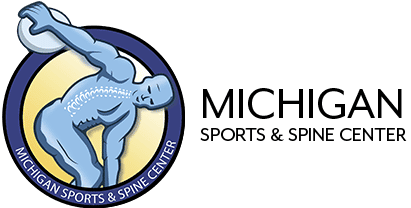What is Degenerative Disc Disease?
‘Degenerative Disc Disease’ is a condition in which a damaged spinal disc causes pain mainly in the back and neck. Spinal discs are rubbery cushions between the bones of the spine that degenerate over time with age. It is not a disease, but a condition in which age-related wear and tear on a disc cause pain and instability. You can further read this blog to know more about the symptoms, causes, diagnosis, treatments, and preventive measures for degenerative disc disease.
What are Degenerative Disc Disease Pain Symptoms?
- The primary symptom of degenerative disk disease is pain in the back and neck. If the pain comes and goes or stays for several weeks or maybe months with severity, this can indicate the condition (Spine Universe).
- There may also be a condition of pain in the low back, buttocks, or thighs leading to numbness in arms or legs, and you may experience that the pain worsens while sitting, bending, or lifting.
- Another symptom can be that you begin to feel better while walking, running, or changing positions while lying down rather than sitting or standing for long hours.
Not all patients need to experience all the symptoms, but these are the usual indicators if anyone is suffering from Degenerative Disc Disease and would like to seek professional help.
We have a professional and talented team at Michigan Sports and Spine Center who can answer all your concerns regarding Degenerative Disc Symptoms and solutions.
What are the causes of Degenerative Disc Disease?
- Age
Most people experience disc degeneration after 30 or 40 as the spinal disk wears down due to the normal part of aging. Discs dry out with age and eventually lose their support and function.
- Activity level
If you are an athlete, a parent regularly carrying children, or a worker lifting heavy boxes in a day-to-day routine, this activity level would affect your spine and cause wear and tear in the disc.
- Injury
Any back injury or auto accident that leads to swelling can increase the risk of degenerative disc disease.
- Obesity
Being overweight or obese increases the load that your spine has to bear, which can compress the spinal disc. Excessive spinal disc compression is why doctors always recommend maintaining a healthy weight.
How is Degenerative Disc Disease Diagnosed?
If you are experiencing the symptoms above, it would be best to visit a doctor that specializes in back and neck conditions to get a professional diagnosis.
The foremost step for the doctor would be to review medical history and conduct a physical exam. Typically your doctor will ask questions about when you noticed your back or neck pain starting, activities that make your pain worse, treatments you have tried to relieve your pain, or if/where your pain radiates to other parts of the body. Additionally, they will almost always observe your posture, range of motion, reflexes, muscular strength, and more.
For some patients, the next step could include advanced imaging scans such as MRI, CT, and X-ray to provide a clearer picture of the disc’s alignment. An imaging scan helps doctors properly diagnose your condition so they can introduce a treatment plan to relieve pain and manage symptoms accordingly.
What Treatments are available for Degenerative Disc Disease?
According to Spine-Health, there is no best way of treating degenerative disc disease, as the treatment varies depending on the condition and level of pain. There are a few pain management treatments that are helpful for pain relief:
- Physical Therapy
Physical Therapy sessions include strengthening and stretching exercises with a trained professional to stabilize the area around the affected disk, increase mobility, and decrease pain.
- Drug Therapy
Your doctor may prescribe non-steroidal medicines, muscle relaxers, or steroids, depending on the severity of the pain.
- Electrotherapy
This method uses electricity as a therapeutic tool to heal your body. Electrical current is sent into the body through the skin to stimulate nerves and muscles, which help to relieve pain.
- Back Braces
These are usually prescribed to reduce muscle tension and low back pain, improve posture to redistribute weight in the spine, and increase function and mobility in daily activities. Back braces are usually combined with physical therapy to produce effective results.
- Activity Modification
Performing work and everyday living activities in the form of exercises focused on stabilizing your back, improving posture, or losing weight will help reduce stress on the disc. It is also best to stay active and not keep lying in the same position. Bringing mobility and good body mechanics to your day-to-day activity would be beneficial in the long run.
- Surgery
In most cases, Degenerative Disc Disease patients do not require surgery, but if you have tried all non-surgical treatments that have not been successful, there could be a need to opt-in for surgery.
At Michigan Sports & Spine Center, our Physical Medicine & Rehabilitation Doctors believe in a non-surgical approach for all patients. We combine non-invasive pain management treatments, physical therapy, and the best to help patients avoid surgery. For rare acute cases, our doctors can refer you to some of the best surgeons in the state of Michigan.
How can I prevent Degenerative Disc Disease from getting worse?
The best way to keep your spine strong is to lead a healthy lifestyle, including getting regular exercise, eating a well-balanced diet, and avoiding harmful risk factors such as smoking and carrying excess weight.
Suppose you need to get your lumbar or cervical spine health checked by a team of experts. In that case, Michigan Sports and Spine Center is the best place for professional consultations, accurate diagnosis, and effective treatments. Call us at 248.426.9944 or fill in the contact form to schedule a consultation.
Sources:
https://www.spineuniverse.com/conditions/degenerative-disc-disease
https://www.neurosurgery.columbia.edu/patient-care/conditions/degenerative-disc-disease
https://www.spine-health.com/conditions/degenerative-disc-disease
https://my.clevelandclinic.org/health/diseases/16912-degenerative-disk-disease
